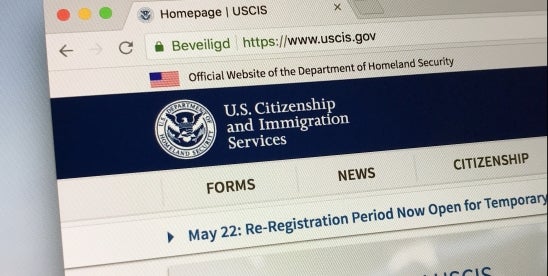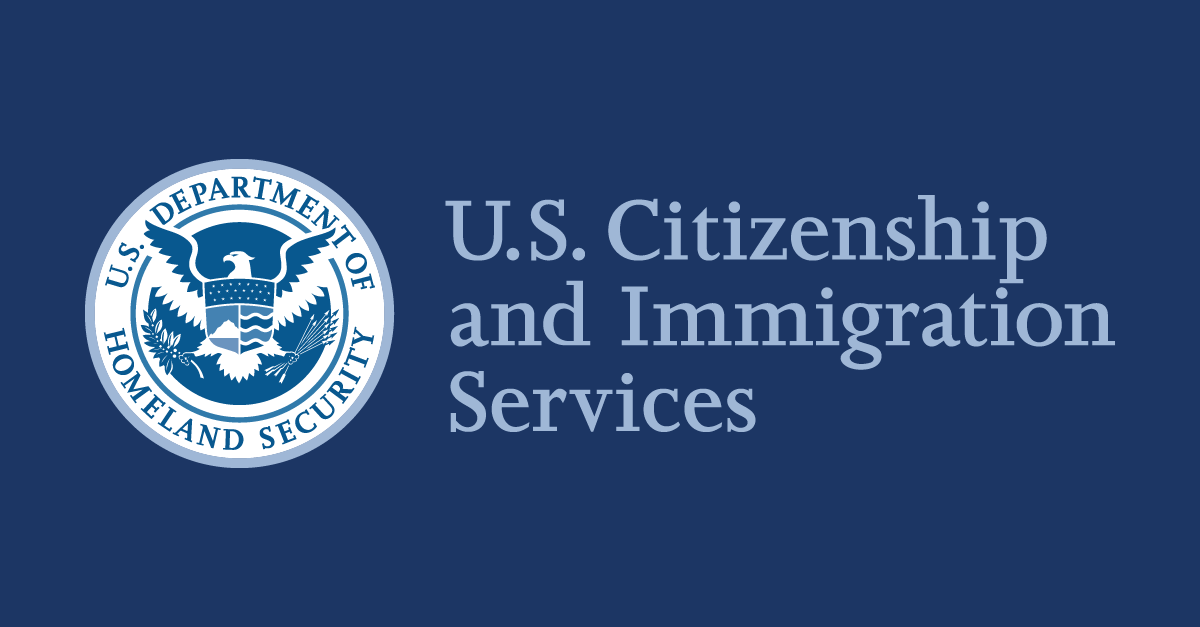As of December 2, 2024, the US Citizenship and Immigration Services (USCIS) will mandate that some applicants intending to adjust their immigration status to permanent residency must submit Form I-693, the Report of Immigration Medical Examination and Vaccination Record, alongside Form I-485. The aim of this new procedural requirement is to verify the applicant’s health-related admissibility, lessen the number of Requests for Evidence (RFEs) during the adjudication process, and expedite the application procedure.
For eligibility, applicants typically need to undergo an immigration medical examination and receive required vaccinations. A certified civil surgeon should complete and sign Form I-693 to verify that the applicant doesn’t have health conditions that would classify them as inadmissible on health-related grounds. According to the new requirement, Form I-485 instructions have been updated to demand Form I-693 or its partial variant, the Vaccination Record. Nonadherence may result in the rejection of the Form I-485 application.
However, this new requirement raises concerns, especially among immigrants in areas like Kansas City where affordable healthcare options for these necessary examinations are limited. The medical examinations for immigration must be done by USCIS-qualified physicians and include a medical history review, a physical exam, a chest x-ray, and blood tests. Only 17 locations in Kansas City offer such services and the growing immigration population results in longer waiting lists. Moreover, the expected cost for these exams is outside most immigrants’ financial reach, with the cost not covered by most insurances and no regulation limiting the charges.
Conversely, organizations like KC CARE Health Center in Kansas City offer a more affordable option by providing these examinations at a base cost of $250. They also offer a comprehensive suite of health services, aiming to introduce immigrants to the health system while fulfilling the regulatory requirement.
The changes in the immigration process are perceived as necessary to hasten the adjudication of Form I-485. While USCIS previously sent out Requests for Evidence to complete essential documents in the immigration process, the new changes intend to require complete information from the initiation of the immigration process. USCIS claims that as of April 4, 2024, the Form I-693, if duly completed, won’t expire and can be used indefinitely as proof of admissibility.
However, to avoid any errors or issues while submitting these forms, it is strongly advised that immigrants consult with an immigration attorney or an accredited immigration service organization. The medical exam and vaccination requirements may differ based on the immigration benefit sought by the individual. USCIS provides detailed information about the necessary requirements and where to find designated civil surgeons for medical examinations and vaccinations.
1. New USCIS Policy Requires Concurrent Filing of Form I-693 with Adjustment of Status Applications
The U.S. Citizenship and Immigration Services (USCIS) announced on Dec. 2, 2024, a policy to mandatorily file Form I-693 concurrently with all adjustment of status (AOS) applications. This form reports immigration medical examination and vaccination records and is a critical aspect of the AOS process. The updated policy marks a significant shift from earlier USCIS requirements that permitted AOS applicants to file their green card applications without Form I-693. The new policy might necessitate AOS applicants to plan their timeline to ensure a timely green card application submission based on the Department of State’s visa bulletin.
2. Good Moral Character Requirement for U.S. Citizenship Explained
USCIS applicants must demonstrate “good moral character,” an evaluation of their behavior that aligns with societal ethical and moral standards. Factors such as annual tax reports, fulfilling financial obligations, and truthful conduct during the immigration process demonstrate this character. Relevant conduct includes legal obedience as well as noncriminal harmful behavior. Serious offenses like murder, weapon trafficking, perjury, and money laundering above $10,000 permanently bar an applicant from good moral character. Meanwhile, some minor offenses negatively affect this demonstration conditionally. The judgment on conditional bars is discretionary and depends on the specific circumstances of each case.
3. USCIS Citizenship Public Education and Awareness Campaign
This campaign promotes the awareness of U.S. citizenship significance, rights, and responsibilities. It also informs lawful permanent residents (LPRs) and immigrant-serving organizations about available free resources for citizenship preparation. Community organizations can support this campaign in various ways, including website widget placement, resource linking, PSA uploads, flyer distribution, and organizing information sessions. USCIS has developed a series of advertisements, widgets, PSAs, and informational flyers for download and use. Further, media organizations can receive Citizenship Resource Center email updates.
An investigation by ProPublica has found that despite a governmental audit, some doctors with professional misconduct in their histories are still allowed to vet the health of green card applicants. This check can decide the future of an immigrant’s petition for permanent residency. Last year, investigators found that the federal program for these health checks included doctors who had been disciplined by state medical boards and faced criminal charges. One had even been convicted of hiring a hitman to kill a disgruntled patient. The review concluded that U.S. Citizenship and Immigration Services (USCIS), the agency that maintains the list of more than 5,000 doctors, inadequately vetted the physicians and often failed to meet its own standards.
The investigators found more than 150 doctors accused of assault and negligence in December. Many of these individuals are still offering examinations. For instance, James Richard Luu, of San Jose, California, allowed his sister to use his prescription pad and to mistreat patients in his office. He was charged with aiding and abetting the unlicensed practice of medicine. However, Luu is currently offering immigration exams and claims that “everything has been cleared.”
The USCIS promised to clean up the list after the audit and to prevent green card applicants from being exposed to possible harm. However, it does not require any consideration of doctors’ disciplinary histories when they apply for the program. Consequently, nearly all of the doctors on the list who have serious records were vetted using only the requirement of an active medical license.
The investigation recommended the USCIS develop stricter standards, similar to those used by the Department of Health and Human Services. Many of the physicians on the agency’s list would be disqualified under these standards. The agency has missed several self-imposed deadlines to resolve this issue. Meanwhile, a hundred doctors with a history of misconduct are still listed online.
The consequences of improperly maintained records were illustrated by the case of Fernando Romero. A single error by a USCIS-designated doctor in not including her contact information in the form led to his application being denied and instructions to leave the United States immediately. Under past policy, a USCIS officer would have been likely to notify Romero about the missing information. However, the agency changed this policy last year. Officers are not now required to send notification in these circumstances.
The lawsuit filed on behalf of Romero claimed that the USCIS was arbitrarily punishing him for another person’s mistake. Two weeks after the lawsuit was filed, Romero was allowed to submit a corrected form and his green card application was approved.
This investigation raises serious concerns about the continued state of the USCIS list and the not inconsequential fees charged by civil surgeons for the immigration medical examination. Despite the Trump administration’s focus on illegal immigration, the federal government’s pathway to legal immigration is, too, challenging. Changes to USCIS policies have made correction of mistakes in green card applications difficult, which increases the stakes for the immigrants, doctors, and attorneys who complete the forms.
Sources:
 Avoid Rejection: Form I-693 Report of Medical Examination and Vaccination Record Is Now Mandatory When Filing Form I-485
Avoid Rejection: Form I-693 Report of Medical Examination and Vaccination Record Is Now Mandatory When Filing Form I-485 USCIS will require medical and vaccination reports to be submitted with the green card application
USCIS will require medical and vaccination reports to be submitted with the green card application USCIS Mandates Concurrent Filing of Form I-693 with Adjustment of Status Applications
USCIS Mandates Concurrent Filing of Form I-693 with Adjustment of Status Applications Good Moral Character for U.S. Citizenship: What it Means
Good Moral Character for U.S. Citizenship: What it Means Citizenship Public Education and Awareness Campaign
Citizenship Public Education and Awareness Campaign Despite Audit, Doctors With Checkered Records Can Still Decide Fate of Green Card Seekers
Despite Audit, Doctors With Checkered Records Can Still Decide Fate of Green Card Seekers





Leave a Reply